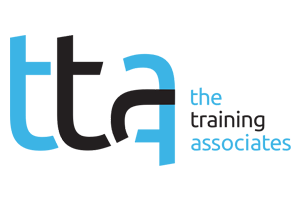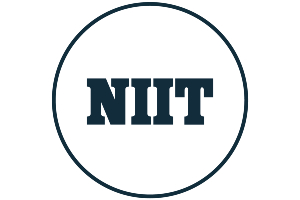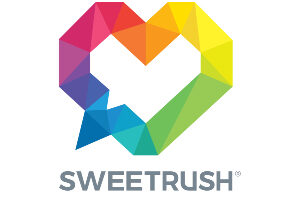“Edtech is the next fintech,” proclaimed TechCrunch in August, calling edtech “2017’s big, untapped and safe investor opportunity.” If this article is correct, the major edtech investments we saw in 2016 are just the beginning – and tech was only one of the areas of training that saw new companies and funding this year. 2016 also saw the rise of the corporate learning library, a surge in adaptive and social learning, investment in employee wellness, consolidations in professional education and workforce development, and funding in IT training and coding bootcamps. Here’s a look at some of the big deals of 2016.
The Learning Library
As more learners use mobile devices to access training content, learning libraries are becoming more popular. These companies supply a large number of courses for training leaders to select from for their employees. Degreed and Udemy stood out in 2016 with major funding rounds. In June, Udemy announced a $60 million investment from Naspers Ventures to expand its global reach. Degreed closed its $25 million Series B funding round in August. Both Udemy and Degreed include offerings for individuals and businesses. OpenSesame, another library of e-learning courses, closed its $9 million Series B funding round in September.
By sourcing courses from learning libraries, training organizations avoid paying for their own libraries, which may have courses that aren’t needed. Whether the organization pays for courses for individual employees or works with the supplier to create its own platform, the learning library can help training managers ensure alignment between training and business needs.
Adaptive and Social Learning
Adaptive learning, or using technology to individualize training, became more popular in 2016. In November, Axonify raised $27 million in growth equity funding to expand its business, which offers an adaptive “Employee Knowledge Platform” to personalize and measure employee learning. Fulcrum Labs, another adaptive learning-focused agency, acquired Adapt Courseware in February. True to its name, Adapt Courseware offered a personalized learning platform, which is now part of Fulcrum Labs.
Axonify CEO Carol Leaman says that adaptive learning is crucial “to really strategically and surgically close knowledge gaps” and align learning with business needs. By ensuring that only the content that learners actually need is created and delivered, the training organization saves time and money, boosting ROI.
Another technology-enabled learning modality that picked up steam this year is social learning. Social media’s ubiquity led naturally to its adoption in training, and LinkedIn, a social media giant, entered the corporate training market with its acquisition of Lynda.com last year and launch of LinkedIn Learning this year. Other training companies also capitalized on social this year, including Everwise, which closed a $16 million Series B funding round, and Yellowdig, which raised $1 million.
Employee Wellness
Mindfulness training was a popular topic this year, and Arianna Huffington made waves in the media when she announced in August that she was stepping down from the Huffington Post to launch her health and wellness venture, Thrive Global. Thrive Global, which includes a corporate training component, closed its $7 million Series A funding round in August and formally launched in November.
Meanwhile, eMindful closed a $6.85 million Series B round in October. The company’s online and mobile courses are delivered to individuals, corporations and government institutions. It claims a $8.70 ROI per dollar spent on the courses, saying that improving employee wellness improves productivity.
Professional Education and Communication Skills
Professionals in industries such as finance, health care and insurance often rely on certifications and other formal learning experiences to develop skills and advance in their careers. In 2016, several acquisitions and investments increased and consolidated these opportunities for professionals. Kaplan acquired SmartPros for $16.9 million in January, expanding its accountancy and financial services offerings. Becker Professional Education acquired the Association of Certified Anti-Money Laundering Specialists (ACAMS) for $330 million in July, and Investoo.com, an online trading school, announced a $2 million investment in December. The Institutes acquired Polestar Performance Programs, which provides professional development for the risk management and insurance industry. Meanwhile, in health care, Career Step acquired Medic-CE, an online continuing education platform for EMTs and firefighters, and Relias acquired Swank HealthCare and AHC Media, both providers of acute health care training.
In September, The Ariel Group, a leadership training company focused on communication skills, acquired Better Communications, which specializes in business writing training for financial, technical and scientific leaders and consultants. This acquisition broadened The Ariel Group’s offerings from focusing on, in the words of CEO Sean Kavanagh, “the spoken word,” to include the ability “to speak, write, or sell with greater impact.” For non-native English speakers, GlobalEnglish completed its management buyout from Pearson. The company now independently provides its online business English language training and personal coaching around the world.
Gamification
The always-popular gamification saw some movement in 2016 as well. GamEffective raised $7 million for its gamified human capital management products, and CodeFights completed a $10 million Series A funding round for its gamified software engineering education tool. Unicorn Training acquired BAFTA-nominated games studio Amuzo to develop immersive games and apps for financial services and compliance professionals.
Gamification helps both employees and employers by improving productivity and business results. Games can be highly motivating and engaging, especially for millennial employees and customers, who grew up playing computer and video games. Like adaptive learning, games can make learning more personalized, placing more control in the hands of the learner.
IT Training and Coding Bootcamps
Coding bootcamps continued to be popular in 2016, which saw increased funding and some consolidation. Fullstack Academy acquired The Starter League for an undisclosed amount. The Starter League was one of the first coding bootcamps, and acquiring it helped Fullstack Academy expand its offerings and customer base. Galvanize, which combines bootcamp training with corporate training offerings and community workspaces, completed a $45 million Series B funding round to provide access for more students and help businesses re-skill employees.
Other IT training deals included Avnet’s acquisition of ExitCertified, Codecademy’s $30 million Series C round, General Assembly’s acquisition of Bitmaker, and Linux Academy’s $2.3 million growth capital investment.
The Rise of Corporate Edtech
Edtech startups have traditionally focused on K-12 and higher education. However, in 2016, we saw more tech companies developing corporate training offerings, and investors followed suit. SaaS companies Grovo and EverFi raised $40 million each this year, and Glint, a real-time employee engagement platform, completed a $27 million Series C round. Inkling had a $25 million Series E round to expand sales of its digital content platform, and Qstream raised $15 million for its sales acceleration software business.
New companies BetterUp and BetterSkills raised $12.9 million and $1 million for their professional development platforms (BetterUp provides mobile coaching and BetterSkills an integrated workforce analytics and talent development platform). HighGround and Zugata, both providers of performance management technology, raised $7.6 million and $7 million, respectively. Landit raised $2 million for a women’s professional development platform, and a $1 million angel investment will help sixQ expand its QuestionScience assessment platform. Lesson.ly, a learning automation software provider, raised $5 million, and GO1, which provides customized e-learning, raised $4 million. Strivr Labs, which currently provides virtual reality training tools to professional and college football teams, raised $5 million to expand further into sports and into the workplace.
What’s Next?
What will we see in 2017? We will likely continue to see large training companies round out their service offerings by picking up new skills, and there seems to be no stopping the edtech investment trend. Stay tuned with Training Industry, Inc., and we’ll keep you updated throughout the year.






